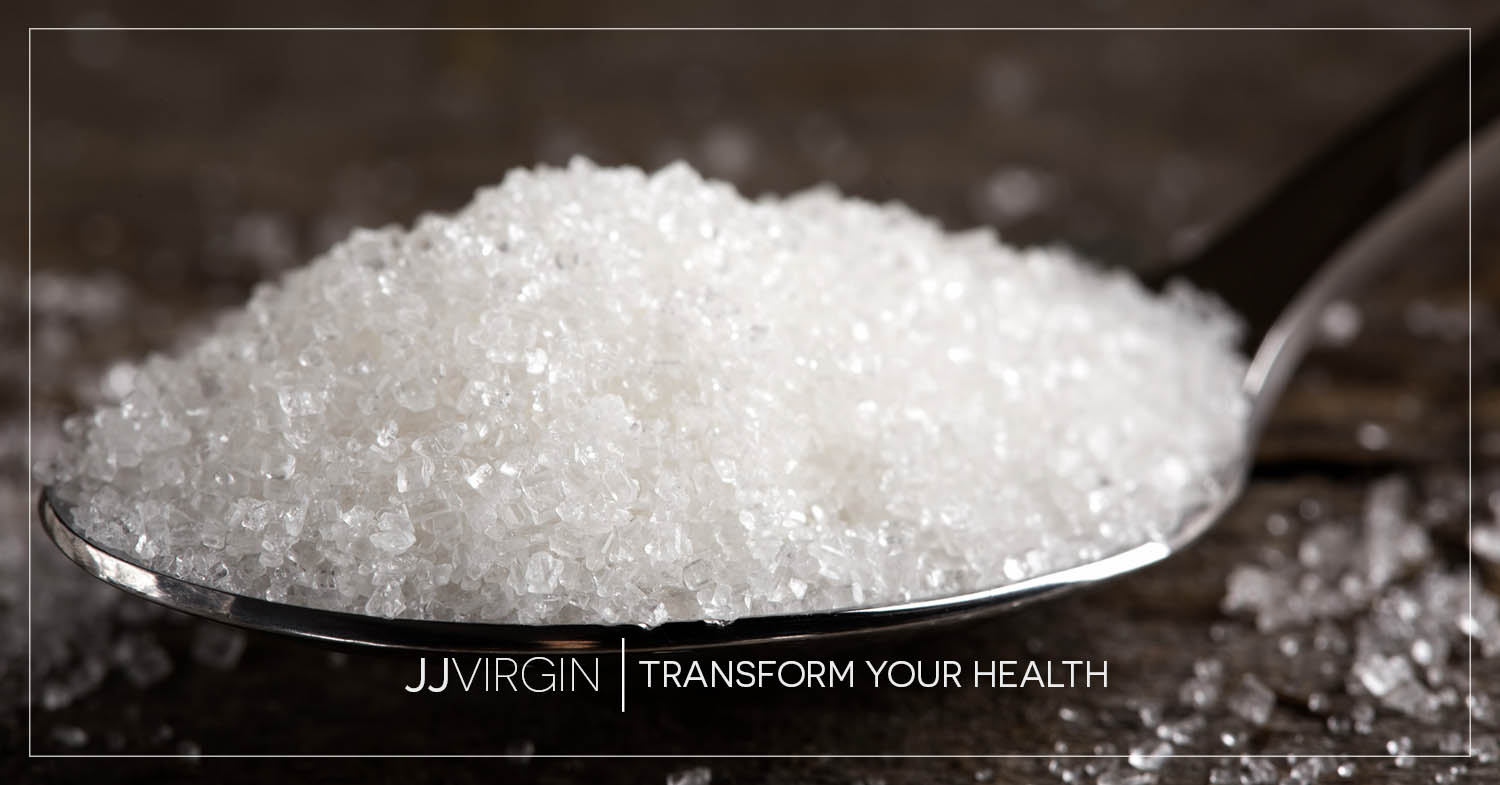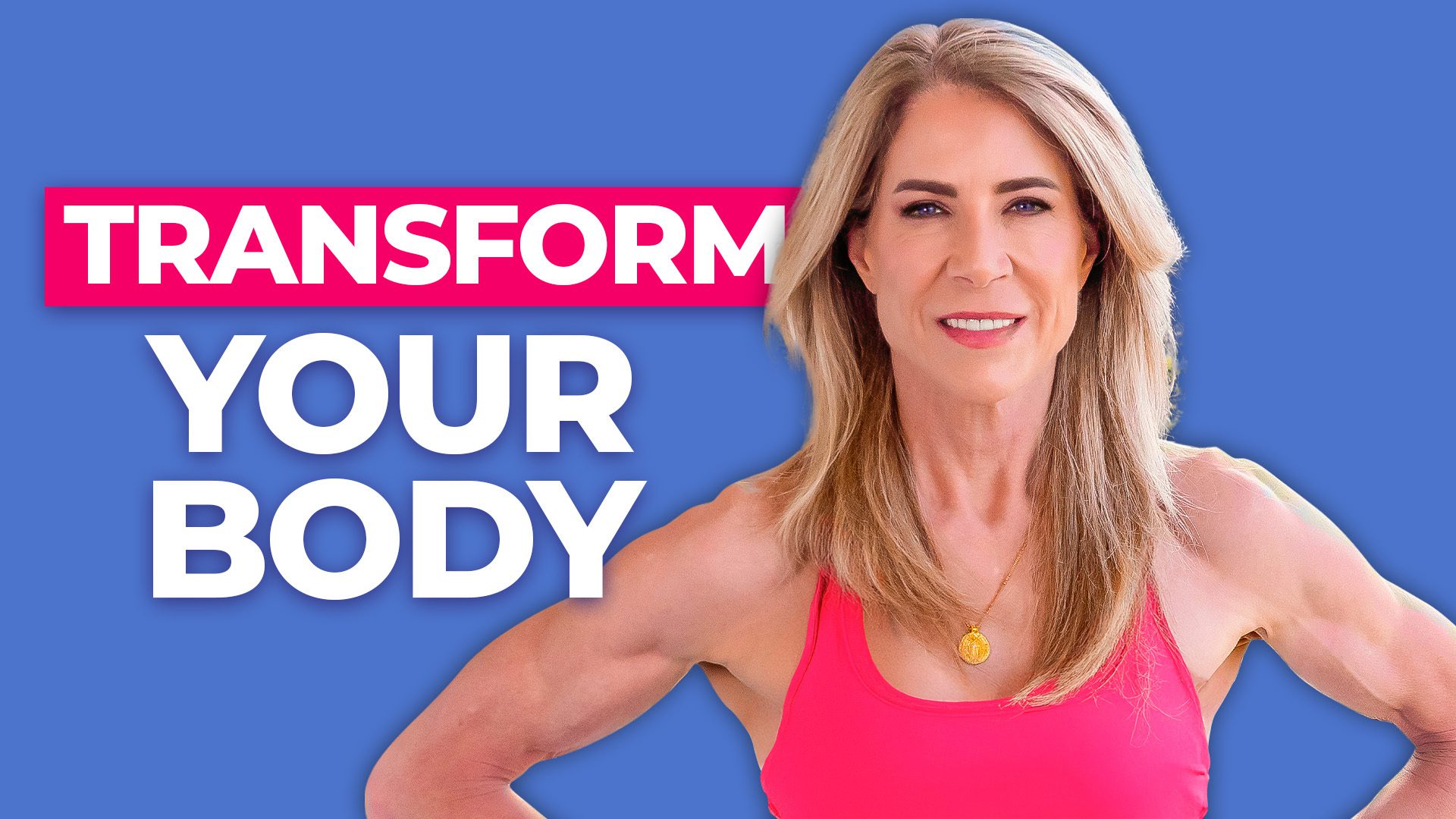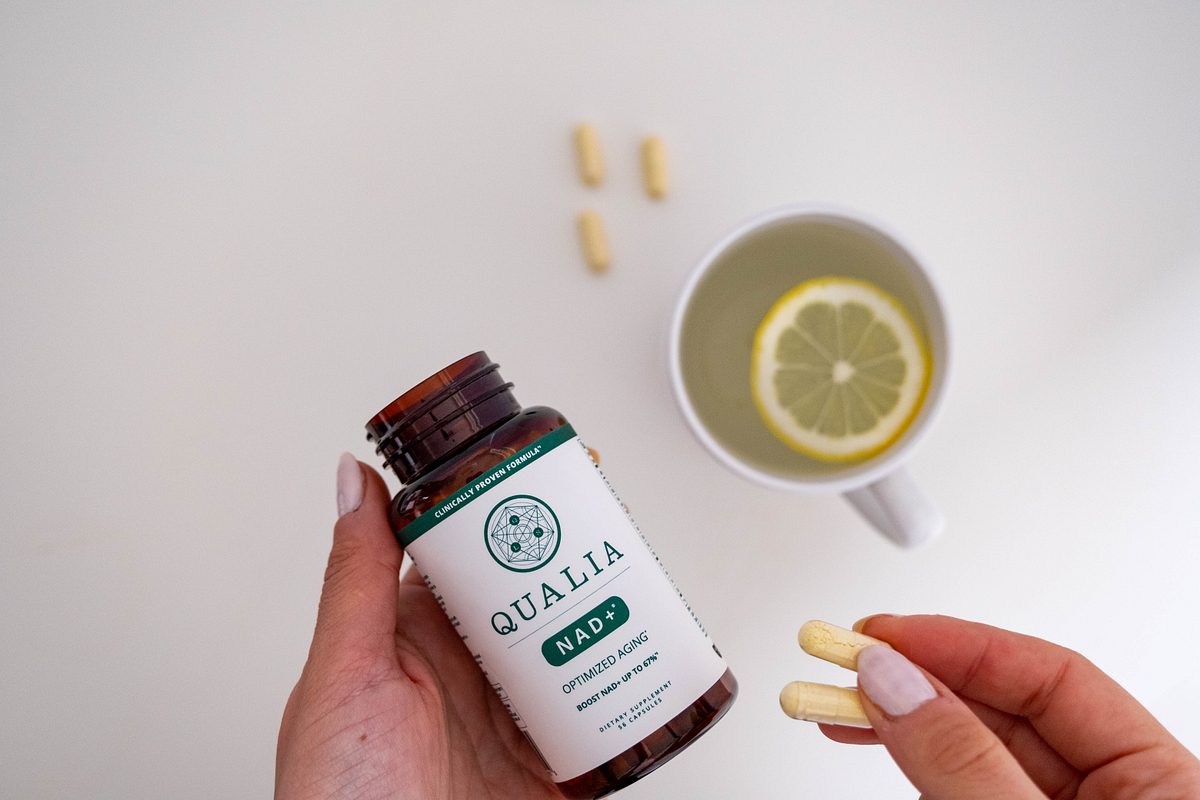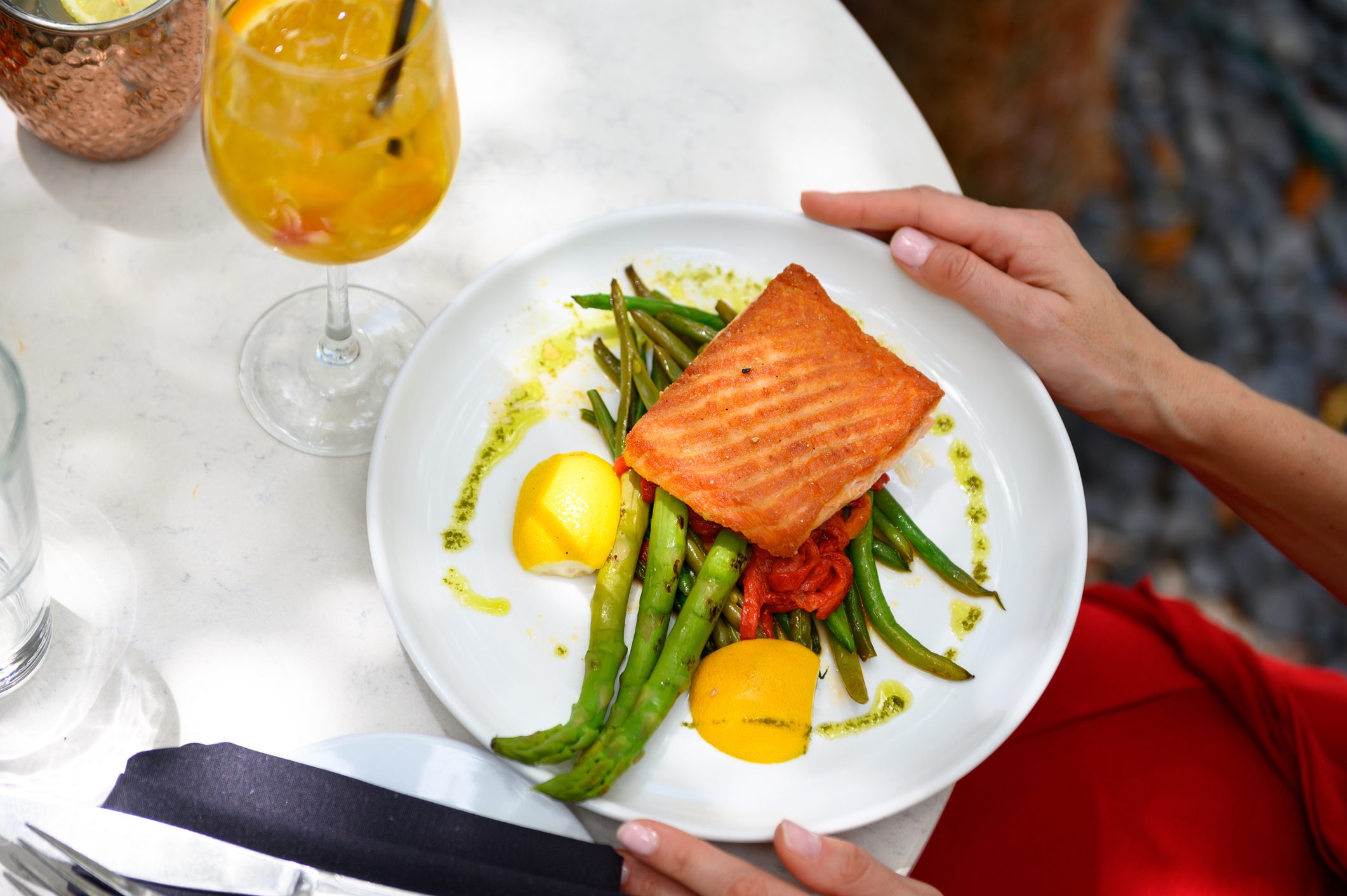There’s nothing wrong with wanting a little sweetness in your life! But some sweeteners can lock the doors on your fat cells, increase inflammation, crash your immune system, and wreak havoc on your gut.
Sugar hides under many, many disguises. According to SugarScience™, added sugar is hiding in 74 percent of all processed foods!
A good rule of thumb is that any ingredient ending in -ose is sugar. But even then, you’re not off the hook.
The best strategy here is to mostly eat whole, unprocessed foods… and only buy processed foods from manufacturers that you trust, while carefully scrutinizing labels.
Let’s deep dive into some of the many types of sugar, including what’s safe to use… and what to avoid.
No matter what your personal goals are, the end destination is always the same: To feel better than you ever have. My Ultimate Health Roadmap provides short, actionable steps you can take RIGHT NOW to be the best version of you. The guide is FREE, and you can only get it here.
What NOT to Use
Sugar is addictive. It sneaks in under all sorts of names, from high-fructose corn syrup and coconut sugar to dextrin and maltose.
Here are four of the most common sweetener options (and why they don’t belong in your pantry or on your plate).
Table sugar
And don’t be fooled by its fancier cousin “organic evaporated cane juice.” This is essentially a prettied-up version of sucrose, which has been proven to contribute to numerous health conditions, including…
- Insulin resistance and type 2 diabetes
- Heart disease
- Cognitive decline
- Cancer
Honey
Yes, it’s a natural sweetener, and no, that doesn’t make it any less harmful! Being all-natural doesn’t make something healthy. (Gasoline and tobacco are also all-natural…)
Taking a small amount of raw, local honey every day to help combat allergies is fine, as long as your immune system isn’t impaired. Otherwise, honey still turns to sucrose and has all the same risks as that bag of white sugar on the grocery store shelf!
Coconut sugar
If you’ve been following me for a while, you know about my love of all things coconut. I use unsweetened coconut milk in my protein smoothies. I’ve defended coconut oil, even when it got a bad rep. I even created a coconut ice cream recipe!
But I say no to coconut sugar, and here’s why…
Coconut sugar contains nearly as much fructose and calories as table sugar. Its high fructose content overshadows the few nutrients it provides. Coconut sugar can also increase cravings and make your sugar habit difficult to overcome.
Agave
This is the worst choice of all because it’s concentrated fructose. In fact, agave nectar, or syrup has more fructose than high-fructose corn syrup!
That’s a problem because (unlike other sugars), fructose gets metabolized by your liver. And when you consume too much fructose, that excess gets converted into fat and stored throughout your body. (Often ending up exactly where you don’t want it: around your belly!)
So, let’s skip the damaging consequences and opt for smarter sweeteners instead!
Top 5 Healthy Sweetener Options
Here are my top sweetener choices that won’t spike your blood sugar, crash your immune system, increase inflammation, or stall fat loss.
Stevia
I’m a big fan of stevia because a small amount can achieve a sweet taste without impacting your blood sugar.
In fact, research shows that stevia can improve glucose tolerance and prevent risk factors for metabolic syndrome, making it a great choice for people with insulin resistance and type 2 diabetes.1,2
A potential drawback of stevia is that some folks notice it has a bitter aftertaste on its own, which is why you’ll often find it mixed with other sweeteners or sugar alcohols.
If you buy stevia, look for 100 percent pure organic stevia, with no other additives or bulking agents. Typically, this will come in small bottles rather than in packets. Even with bottles, read those ingredients. One stevia that I found contained lactose (milk sugar) as a bulking ingredient!
Allulose
This plant-based sweetener may be newer on the market, but it’s quickly become one of my favorites!
Although many manufacturers have been scared away from allulose because it’s still counted as a carbohydrate on nutrition labels, the majority of allulose is actually flushed out of your system and therefore doesn’t impact your blood glucose levels.3
And the good news doesn’t end there! From jumpstarting weight loss and decreasing the risk of fatty liver disease to helping balance blood sugar levels and reducing the risk of type 2 diabetes, preliminary research shows that allulose holds great promise.4-7
Sugar Alcohols
You’ve probably heard of some of the most common sugar alcohols: erythritol, xylitol, and mannitol.
Derived from plant sources, sugar alcohols got their name because their biochemical structure resembles a hybrid of sugar and alcohol.
A major advantage of sugar alcohols is that they can’t be completely digested by your body, which means they have little impact on your blood sugar levels. But the downside to not being fully broken down is that sugar alcohols can cause digestive discomfort in some people.
That’s why it’s important to be your own best health detective and connect the dots between what you eat and how you feel. Only you can figure out which sweeteners work best for you!
It’s also important to note that sugar alcohols like erythritol and birch-derived xylitol are safe for the Virgin Diet. Erythritol is fermented from corn, but since it doesn’t contain corn proteins, it’s not an issue for those avoiding grains or following a corn-free diet because of food intolerances.
However, if you have a true corn allergy (rather than a corn sensitivity), you should not consume corn-derived erythritol or xylitol without first consulting your healthcare provider.
Worth mentioning: if you’ve ever heard the myth that sugar alcohols can cause cancer or tumors, there’s absolutely no research to back up that claim! In fact, multiple animal studies have shown that even after prolonged, deliberately toxic exposure, sugar alcohols did not increase the likelihood of cancer or tumors in any way.
Monk Fruit
Also called “luo han guo,” this Chinese fruit has an extract that’s naturally sweet, yet doesn’t raise blood sugar levels.
And there’s more to love about monk fruit! Studies show that compounds in monk fruit extract have powerful anti-inflammatory benefits, which may help with the prevention of serious health conditions like diabetes and certain types of cancer.8,9
When looking for monk fruit, one thing to remember is that it’s commonly paired with other sweeteners. A combination of monk fruit with sweeteners like erythritol or stevia is fine, but be sure to stay away from sweeteners like dextrose or maltodextrin.
They’re both made from corn, and that can create a whole new set of issues for those with food sensitivities or chronic inflammation.
Worth repeating: Read those ingredients! Some types of monk fruit can contain bulking agents such as maltodextrin.
Glycine
Glycine is an amino acid (the building block of protein) that makes an ideal sweetener for folks with insulin resistance or type 2 diabetes, since it can actually help regulate blood sugar levels.
In fact, research shows that glycine can even help decrease inflammation and enhance immune function in type 2 diabetics!10
Easy Does It! Managing Your Sweet Tooth
A word to the wise: too much of any sweetener can create something called “caloric dysregulation.”
Caloric dysregulation is a really scientific term for a process that’s actually pretty easy to understand. Your body has a built-in sensor that says sweet foods = lots of calories. But if you repeatedly eat something that tastes extremely sweet, but isn’t high-calorie, your sensor can get broken.
That means your brain thinks it’s perfectly acceptable to gorge on super-sweet foods, and you can imagine why that’s a problem! So, the key is not to condition your palate to expect sweetness at every meal.
The ultimate goal is to use sweeteners in moderation as part of a low-sugar impact diet and retrain your tastebuds to appreciate the natural flavors of food.
If you’re not at that point yet, never fear – the Sugar Impact Diet can help! It’s an ideal eating plan if you have any of the tell-tale signs of a sugar burner: carb and sugar cravings, snack attacks, or belly fat that refuses to budge.
Take this quick quiz to find out if you’re a sugar burner and how to transition to burning fat for fuel instead…
Healthy Dessert Swaps
My goal is always to be sure you don’t suffer from cravings or sweets. But whether you’re entertaining or the chocolate bug bites, it pays to have guilt-free dessert recipes on hand! This one for Creamy Chocolate Protein Pudding is the perfect no-cook treat.
In the mood for more tasty recipes without the added sugar? Be sure to grab my Sweet Treats Recipe Guide! I’ve included brownies, fudge, and 13 other mouthwatering recipes. Get your free guide here.
References
1 https://www.ncbi.nlm.nih.gov/pubmed/14681850
2 https://www.ncbi.nlm.nih.gov/pmc/articles/PMC5651958/
3 https://www.ncbi.nlm.nih.gov/pubmed/19765780
4 https://www.ncbi.nlm.nih.gov/pubmed/20208358
5 https://www.ncbi.nlm.nih.gov/pubmed/28209058
6 https://www.ncbi.nlm.nih.gov/pubmed/22339545
7 https://www.ncbi.nlm.nih.gov/pubmed/25754616
8 https://www.ncbi.nlm.nih.gov/pubmed/21631112
9 https://www.ncbi.nlm.nih.gov/pubmed/16835866
10 https://www.ncbi.nlm.nih.gov/pubmed/18852529
The views in this blog by JJ Virgin should never be used as a substitute for professional medical advice. Please work with a healthcare practitioner concerning any medical problem or concern. The information here is not intended to diagnose, treat, or prevent any disease or condition. Statements contained here have not been evaluated by the Food and Drug Administration.
*These statements have not been evaluated by the Food and Drug Administration. This product is not intended to diagnose, treat, cure, or prevent any disease.






